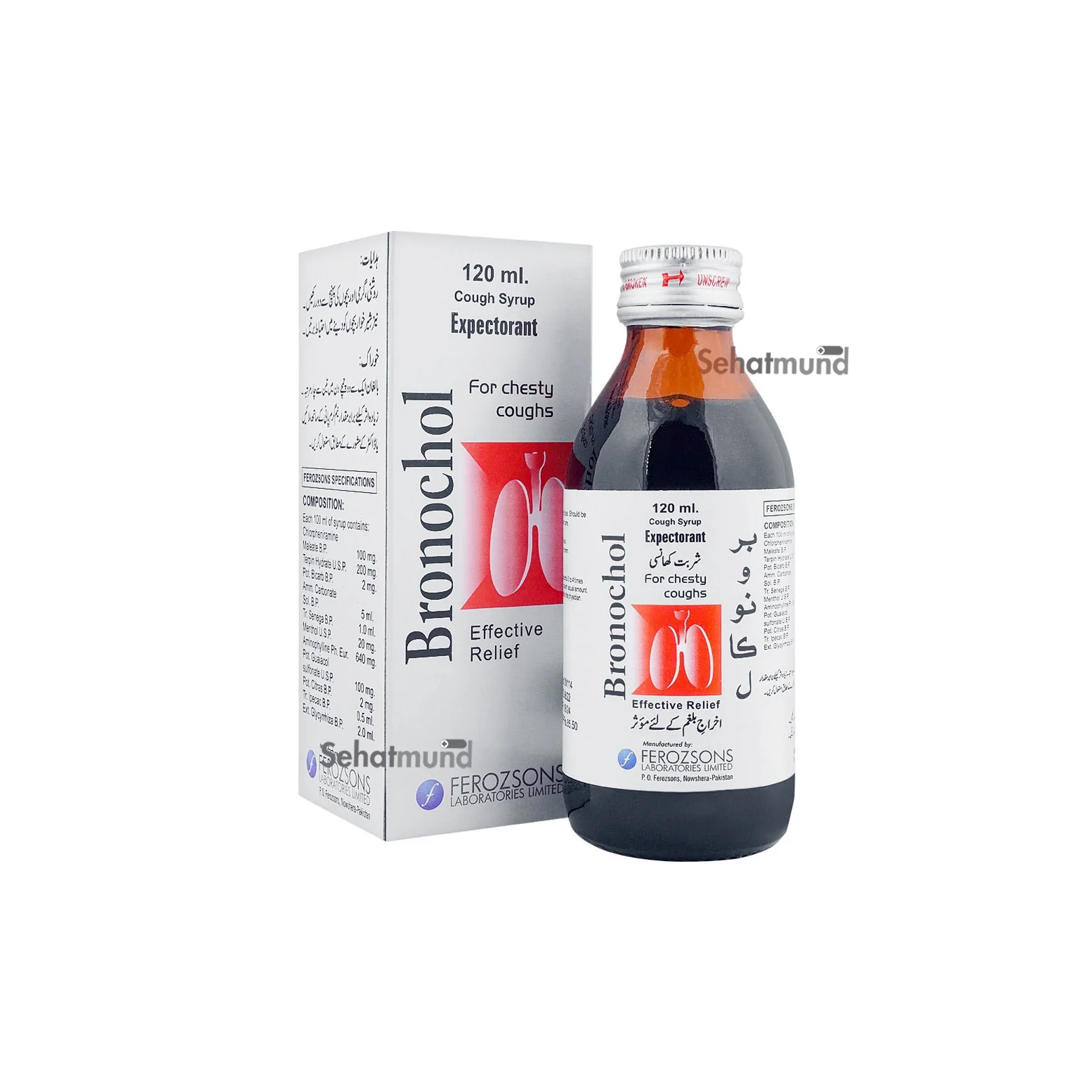Your cart is currently empty!
BRONOCHOL SYP
₨ 113
This syrup is used to relieve cough and congestion associated with colds, bronchitis, and other respiratory illnesses. It typically contains a combination of ingredients that help to loosen mucus and make it easier to cough up.
1 in stock
Description
Effective Relief for Cough and Congestion: Understanding Cough SyrupCough syrups are a common remedy for relieving cough and congestion associated with colds, bronchitis, and other respiratory illnesses. These syrups typically contain a combination of ingredients designed to loosen mucus and make it easier to expel, providing much-needed relief from respiratory discomfort.
Composition and Mechanism of Action
Cough syrups often include a blend of the following active ingredients:
Expectorants:
Function: Expectorants, such as Guaifenesin, work by increasing the volume and reducing the viscosity of mucus in the airways. This makes it easier to cough up and clear the mucus, helping to alleviate congestion.
Mucolytics:
Function: Mucolytics, like Bromhexine, help to thin and loosen mucus, making it less sticky and easier to expel from the respiratory tract.
Bronchodilators:
Function: Bronchodilators, such as Terbutaline, relax the muscles in the airways, widening them and making it easier to breathe. This is particularly beneficial for individuals experiencing bronchospasm or tightness in the chest.
Soothing Agents:
Function: Ingredients like Menthol provide a cooling sensation and help to soothe the throat, reducing irritation and discomfort associated with coughing.
Uses and Benefits
Cough Relief: These syrups are effective in relieving both dry and productive coughs. They help to clear mucus from the airways, reducing congestion and making breathing easier.
Respiratory Infections: Cough syrups are commonly used to manage symptoms of respiratory infections, such as colds and bronchitis. By loosening mucus and soothing the throat, they help to alleviate discomfort and promote recovery.
Congestion Reduction: The combination of expectorants and mucolytics in these syrups helps to reduce congestion by thinning and loosening mucus, making it easier to expel.
Side Effects and Precautions
While cough syrups are generally safe when used as directed, some individuals may experience side effects. Common side effects include:
Nausea and Vomiting
Drowsiness and Dizziness
Headache
Stomach Upset
Fast Heartbeats
Precautions:
Allergies: Inform your doctor if you are allergic to any of the ingredients in the cough syrup.
Pregnancy and Breastfeeding: Consult your doctor before using cough syrup if you are pregnant or breastfeeding.
Medical Conditions: If you have a history of fits, diabetes, high blood pressure, overactive thyroid, stomach ulcers, or any kidney, liver, or heart problems, inform your doctor before taking cough syrup.
Conclusion
Cough syrups are a valuable tool in managing cough and congestion associated with respiratory illnesses. By understanding their composition and benefits, patients can effectively use these medications to alleviate symptoms and improve their respiratory health. Always consult a healthcare professional before starting any new medication to ensure it is appropriate for your specific condition.




